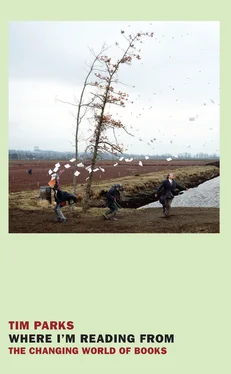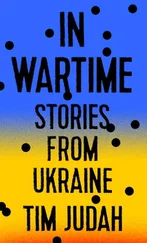Now, let’s imagine that we have been condemned for life to making, year in year out a burdensome and nearly impossible decision to which the world increasingly and inexplicably ascribes a crazy importance. How do we go about it? We look for some simple, rapid, and broadly acceptable criteria that will help us get this pain out of the way. And since, as Borges himself noted, aesthetics are difficult and require a special sensibility and long reflection while political affiliations are easier and quickly grasped, we begin to identify those areas of the world that have grabbed public attention, perhaps because of political turmoil or abuses of human rights; we find those authors who have already won a huge level of respect and possibly major prizes in the literary communities of these countries and who are outspokenly committed to the right side of whatever political divide we’re talking about, and we select them.
So we have the period when the Nobel went to Eastern-bloc dissidents, or to South American writers against dictatorship, or South African writers against apartheid, or, most amazingly, to the anti-Berlusconi playwright Dario Fo, whose victory caused some bewilderment in Italy. It was an honorable enough formula but alas not every trouble spot (Tibet, Chechnya) boasts its great dissident writer, to which we might add that since the prize is perceived as going to the country as much as to the writer, it’s not possible to give it to writers from the same trouble spot two years running. What a conundrum!
Sometimes the jurists clearly get their fingers burned. Having received so many major literary prizes in Germany and Austria, the left-wing feminist Jelinek seemed a safe choice in 2004. But her work is ferocious, often quite indigestible (she’d never win a literary prize in, say, Italy or England), and the novel Greed , in particular, which appeared shortly before her Nobel was awarded, was truly unreadable. I know because I tried, and tried again. Had the members of the jury really read it? You have to wonder. Not surprisingly, after the controversy caused by Jelinek’s victory, the jury fell back on obvious choices for a couple of years: Pinter, politically appropriate and half forgotten; then Vargas Llosa, whom I somehow imagined had already won the prize many years before.
What a relief then from time to time to say, the hell with it and give it to a Swede, in this case the octogenarian acknowledged as his nation’s finest living poet and a man whose whole oeuvre, as Peter Englund charmingly remarks, could fit into a single slim paperback. A winner, in short, whom the whole jury can read in the original pure Swedish in just a few hours. Perhaps they needed a sabbatical. Not to mention the detail, not irrelevant in these times of crisis, that the $1.5-million-dollar prize will stay in Sweden.
But most healthy of all, a decision like this, which we all understand would never have been taken by say, an American jury, or a Nigerian jury, or perhaps above all a Norwegian jury, reminds us of the essential silliness of the prize and our own foolishness at taking it seriously. Eighteen (or sixteen) Swedish nationals will have a certain credibility when weighing up works of Swedish literature—so we can feel assured that Tranströmer really is an excellent poet—but what group could ever really get its mind round the infinitely varied work of scores of different traditions? And why should we ask them to do that?
IN 1904, THREE years after the first Nobel Prize in Literature was awarded to the French poet Sully Prudhomme, the English Football Association chose not to participate in the formation of an International Football Federation (FIFA). Members could not see the point. Nor, in 1930, the year in which Sinclair Lewis won the Nobel, did the English participate in the first World Cup: they objected to the prospect of a ten-day ocean crossing to Uruguay to play teams that meant nothing to them. The first international football game, they pointed out, had been between England and Scotland, in 1872—a time when Alfred Nobel was still focused on improving his dynamite. Who needs Argentina or Brazil when you have Scotland to play?
I am not the first to draw attention to parallel processes of internationalization in sports and literature. As with many analogies, it is the combination of similarity and difference that is illuminating. For all the different styles of play in different countries and continents, football is a game whose rules can be universally applied. North Korea plays Mexico with a Swedish referee and despite one or two contested offside decisions a result is recorded and one team can pass to the next round without too much discussion. But can we feel so certain when the Swedish referee judges poems from those two countries that he will pick the right winner? Or even that there is a “right” winner? Or even a competition? The Mexican did not write his or her poems with the idea of getting a winning decision over the North Korean, or with a Swedish referee in mind. At least we hope not.
The interesting thing, then, about the English refusal to participate in the early World Cups is that, although there was no real obstacle to measuring themselves against teams from far away, they did not feel that this competition for notional world supremacy was what the sport was for . What mattered was familiar communities confronting each other in the stadium—that would give meaning to the game.
Vice versa, what is fascinating about international literary prizes is that the obstacles to choosing between writers coming from different cultures and working in different languages are so evident and daunting as to render the task almost futile; yet such is the appetite for international prizes and for winners that people do everything possible to overlook this. So what is the underlying purpose of these prizes? To what extent are novelists—like athletes in the Olympics, or soccer players in the World Cup—being asked to contribute to the building of a vast and for the moment largely imaginary global culture? In what way does this change the kind of literature that gets written, and the way it is written and talked about?
These questions were the subject of a conference on global literature that I and my colleague, the Milanese poet Edoardo Zuccato, organized at IULM University in Milan in 2012. In the opening presentation, David Damrosch, head of comparative literature at Harvard and founder of the World Institute for Literature, rather unexpectedly focused on the work of Rudyard Kipling. Based in Lahore, the twenty-year-old Kipling had started out writing for the local Anglo-Indian community, publishing his short stories in the city’s newspaper. Later, as he became aware of a wider readership in England and the United States, he developed all kinds of strategies for making his fiction more accessible to readers who would know little of India; gradually, Damrosch suggested, discovering and “explaining” India became a central part of Kipling’s work.
Thus begins the development of a kind of literary fiction that is largely detached from debates internal to a nation and presented instead as an opportunity to discover a distant community and a sense of our place in a larger world. One important stop along this road was the explosion of South American magical realism, which enjoyed its defining moment with Gabriel García Márquez’s One Hundred Years of Solitude . In the work of Márquez, Carlos Fuentes, Isabel Allende, Julio Cortázar, Mario Vargas Llosa, and others, magical realism offered Americans and Europeans an account of South America in which it was honestly hard to see much difference in spirit or atmosphere between the dozens of countries and communities of this vast continent.
The Mexican novelist Jorge Volpi, who is very much in favor of internationalization, nevertheless points out how difficult it had become at the height of magical realism for South American writers to get themselves published if they didn’t subscribe to this highly stylized vision of literature. At the conference he explained how in the 1990s a group of Chilean writers formed the so-called McOndo group (an ironic reformulation of Macondo, the central location in One Hundred Years of Solitude ), complaining that by gaining the approval of powerful readerships abroad, magical realism was preventing South American writers from recounting the more prosaic truths about the continent.
Читать дальше












